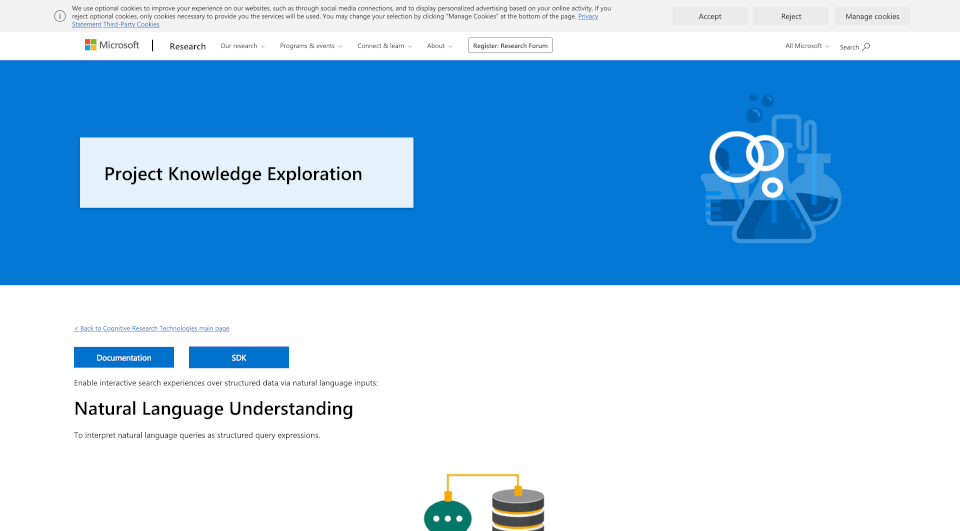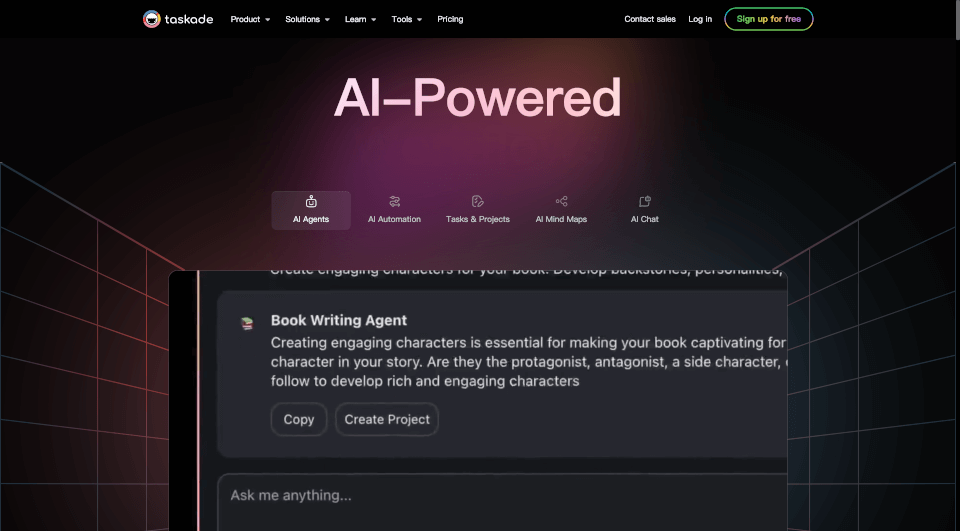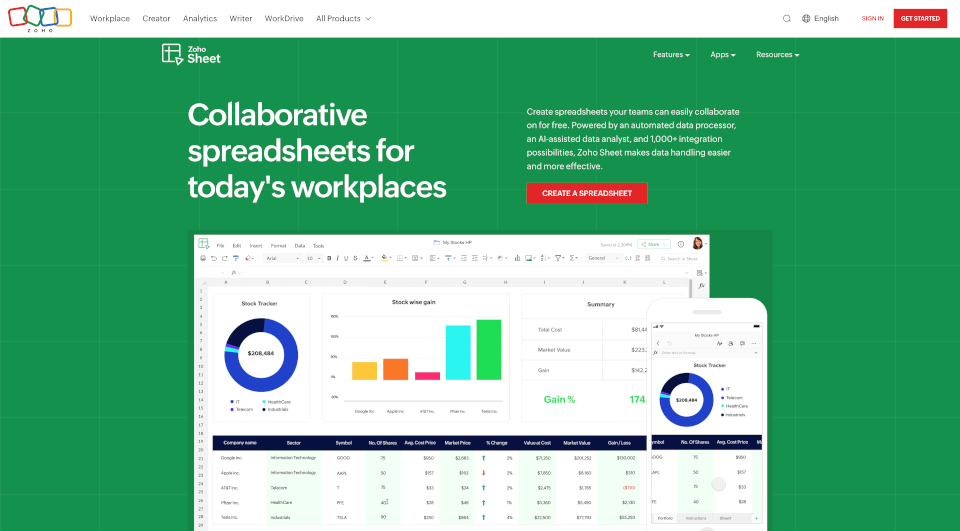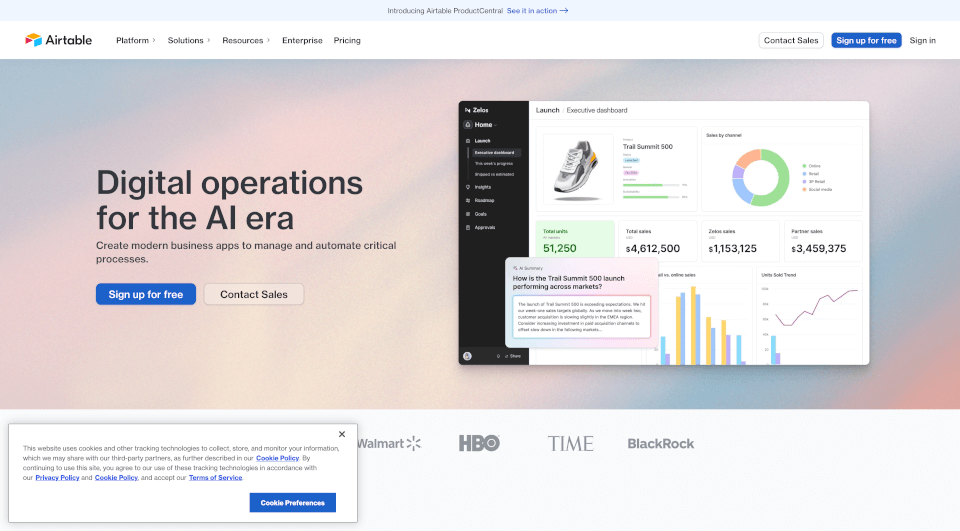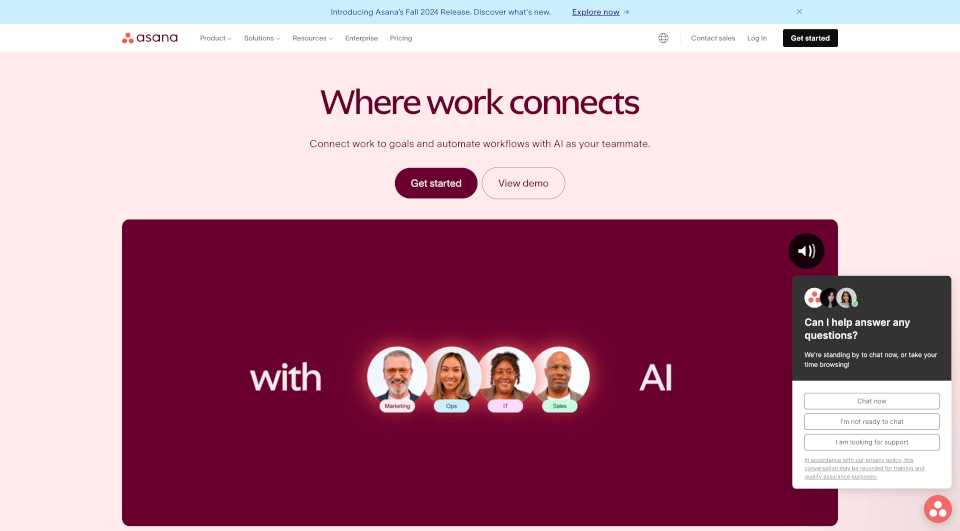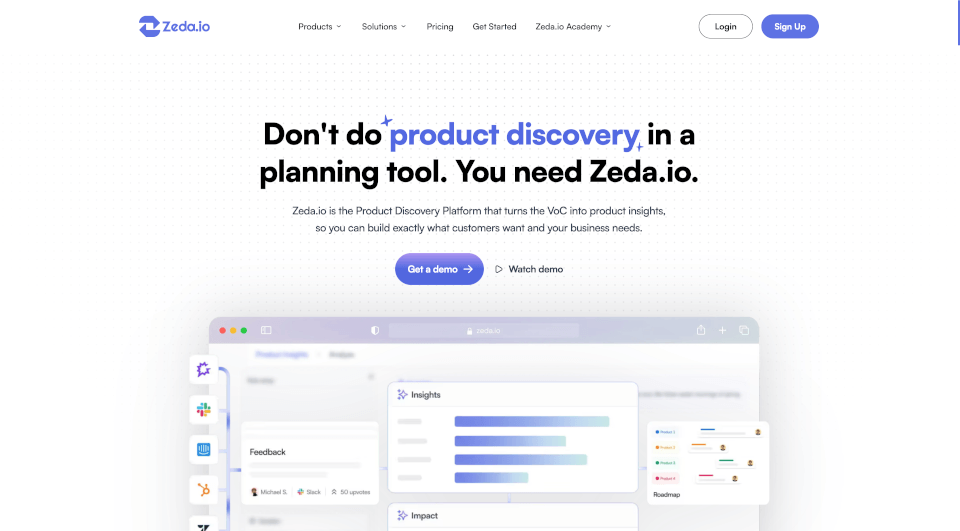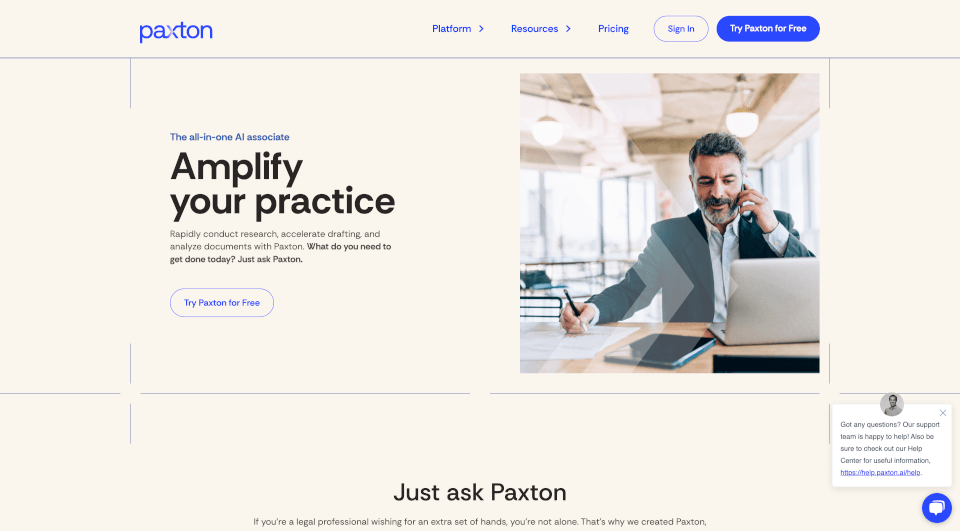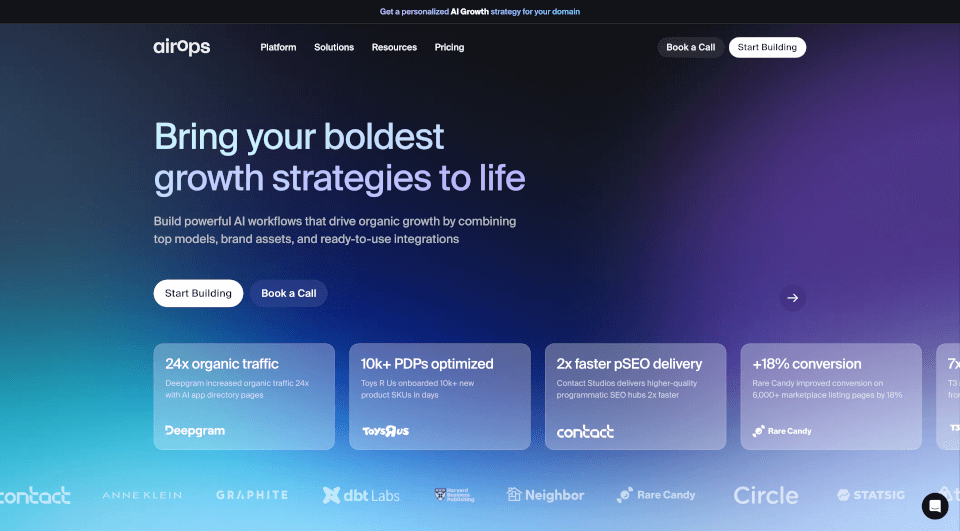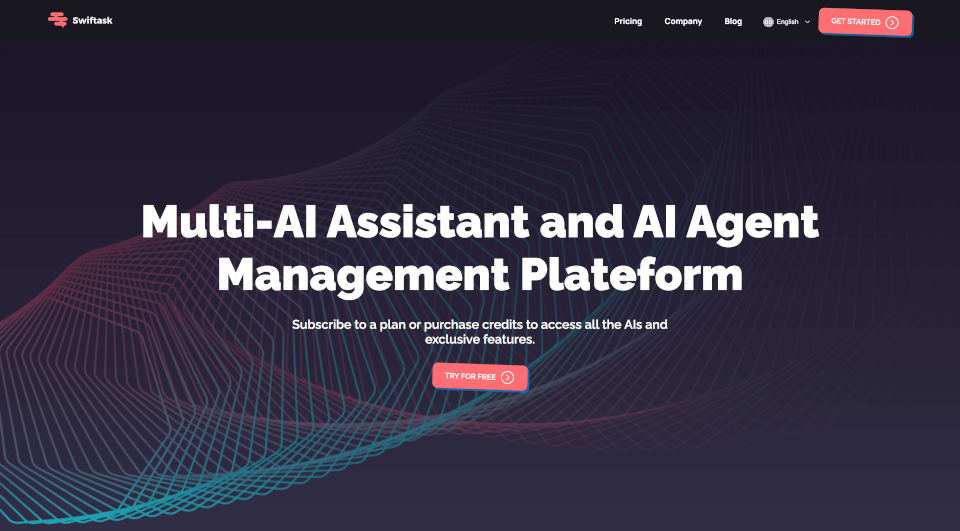O que é Microsoft Knowledge Exploration?
Apresentamos o Projeto Exploração do Conhecimento da Microsoft Research—uma solução inovadora projetada para possibilitar experiências de busca interativas em dados estruturados usando entradas em linguagem natural. Essa tecnologia avançada utiliza Compreensão de Linguagem Natural (NLU) para facilitar consultas mais inteligentes e interações envolventes com o usuário, atendendo, em última análise, a uma ampla gama de aplicações em várias indústrias.
Quais são as características de Microsoft Knowledge Exploration?
-
Compreensão de Linguagem Natural: O coração deste projeto reside na capacidade de interpretar consultas em linguagem natural. Isso significa que os usuários podem fazer perguntas de forma conversacional, e o sistema transformará essas consultas com precisão em expressões de consulta estruturada.
-
Auto-Completação de Consultas: Para aprimorar a experiência do usuário, o sistema incorpora recursos intuitivos de auto-completação de consultas. Isso ajuda os usuários a articularem suas necessidades de maneira mais eficaz, enquanto exploram capacidades que podem não ser imediatamente aparentes.
-
Avaliação de Consultas Estruturadas: Utilizando algoritmos sofisticados, esse recurso permite a recuperação eficiente de informações detalhadas sobre objetos relevantes. Chega de vasculhar dados irrelevantes—os usuários recebem insights focados adaptados às suas consultas.
-
Histogramas de Atributos: Representações visuais de dados são cruciais para entender conjuntos de dados complexos. Este recurso fornece visualizações ricas que aumentam a interatividade e facilitam a exploração de múltiplas facetas dentro dos dados.
Quais são as características de Microsoft Knowledge Exploration?
O Projeto Exploração do Conhecimento se destaca devido à sua arquitetura robusta construída sobre a experiência da Microsoft em inteligência artificial. Este produto é projetado com o engajamento do usuário em mente, oferecendo uma combinação de velocidade, precisão e design amigável.
-
Insights Impulsionados por IA: Utilizando técnicas avançadas de aprendizado de máquina, o sistema aprende e se adapta ao comportamento do usuário ao longo do tempo, fornecendo resultados que atendem às necessidades e preferências individuais.
-
Busca Facetada Interativa: Os usuários podem refinar instantaneamente suas buscas filtrando atributos de forma dinâmica. Isso permite uma experiência de busca mais personalizada e satisfatória, colocando o poder da exploração de dados diretamente nas mãos dos usuários.
-
Aplicação em Diversas Indústrias: Esta solução flexível pode ser adaptada a vários setores, desde a saúde até a educação. Ela aborda necessidades específicas transformando a forma como as organizações acessam e utilizam seus dados.
Quais são os casos de uso de Microsoft Knowledge Exploration?
As potenciais aplicações do Projeto Exploração do Conhecimento são vastas e variadas:
-
Saúde: Profissionais médicos podem formular consultas complexas sobre dados de pacientes ou descobertas de pesquisa, levando à recuperação precisa de informações que enriquecem os processos de tomada de decisão.
-
Educação: Educadores e estudantes podem explorar interativamente vastos repositórios de recursos acadêmicos, tornando a pesquisa e o aprendizado mais envolventes e eficazes.
-
Análise Empresarial: As empresas podem aproveitar essa tecnologia para derivar insights acionáveis a partir de vastos conjuntos de dados, melhorando a eficiência operacional e o planejamento estratégico.
-
Suporte ao Cliente: Capacitar equipes de suporte ao cliente a acessar informações estruturadas rapidamente pode melhorar significativamente os tempos de resposta e a satisfação geral do cliente.
Como usar Microsoft Knowledge Exploration?
Para maximizar os benefícios do Projeto Exploração do Conhecimento, os usuários devem começar formulando suas consultas em linguagem natural. O sistema reconhecerá a intenção e transformará a entrada em uma consulta estruturada. É aconselhável utilizar o recurso de auto-completação para explorar diversos caminhos de consulta, permitindo que os usuários descubram funcionalidades e insights adicionais com facilidade.
Uma vez que a consulta tenha sido processada, os usuários podem aproveitar as visualizações fornecidas para entender melhor as distribuições e relações dos dados. O sistema permitirá que os usuários refinem buscas por meio de filtros interativos, aprimorando ainda mais a relevância e especificidade de seus resultados.
